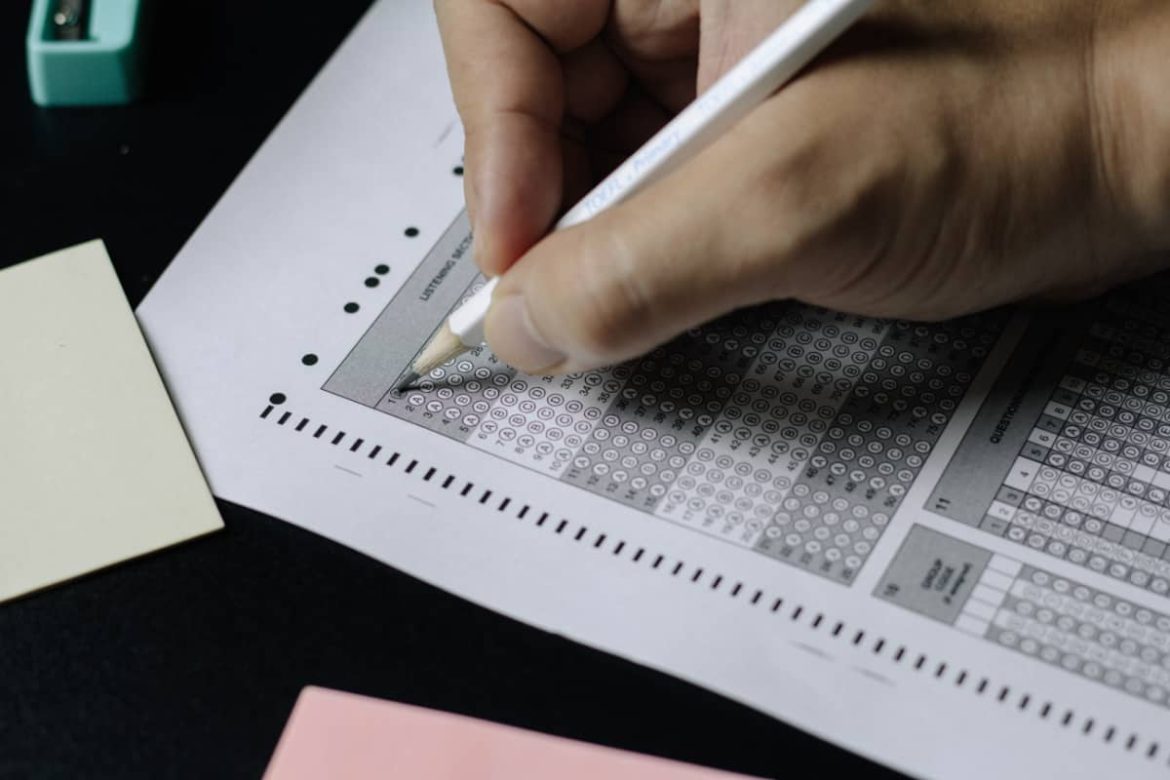Kids have tests all throughout their school years. Whether it is studying for mid-terms, finals, standardized tests, or certification programs, learning the best way to study at exam time is important. Effective exam preparation gives the student the best chance of acing their upcoming exams. That is why I have an expert today to talk about how using the proper study materials and study tools will help with long-term retention of knowledge for test day. Brian Page is the founder of Modern Husbands and he will share some of the most effective ways to create a study routine. His best practices can help students achieve better grades and learn the material better. Better preparation leads to less test anxiety.

How to Prepare for Exams Better
by Brian Page
“Forgive yourself for not knowing what you didn’t know before you learned it.” – Maya Angelou
There is a science to studying that many students have neglected to be taught, and I was one of them. The Maya Angelou quote helps me reconcile the fact that I could have been a better student and spent less time studying if I knew what I know now.
I was the recipient of the Milken National Educator Award in 2011 and taught for 15 years. I’ve seen firsthand the consequences of failing to understand science-based study skills. Although I am no longer a classroom teacher, I am a parent of three. In that world, I continually hear parents complain that their kids have not been taught how to study.
Students are left to guess what works and employ unproductive learning strategies such as:
- Cramming a single subject for long periods of time.
- Studying by repeating phrases or dates over and over to memorize them.
- Reviewing one topic or chapter repeatedly before moving onto another area.
- Reading and rereading lecture notes and/or textbooks.
Some students may remember the material for the test, but the strategies they used are not designed for long-term retention, and comprehensive exams become a problem. Therefore, you should consider alternate formats for your study guide. Here are exam preparation strategies to help you better prepare for the exam date.

Science-Based Learning Strategies
A reliable indication that you’re studying correctly is when the process is active and you have struggled through the early stages of the process. An example, in contrast to cramming, is spacing.
Spacing boosts learning by spreading lessons and retrieval opportunities over time. Attempting to recall information strengthens the neural pathways in the brain associated with that information, making it easier to recall in the future. Here are three examples of spacing:
Distributed Practice
Distributed practice breaks up study or practice sessions into smaller, spaced-out sessions rather than one long session. For example, studying for an hour a day for a week instead of seven hours straight of studying. If you leave yourself enough time for this daily study plan, your review sessions will be far more productive.
Interleaving
Interleaving is studying different material or topics within a study session rather than focusing on one topic at a time. For example, practice science problems for 20 minutes, switch to history for 20 minutes, and then return to science.
As the University of Arizona Academic Affairs puts it, “Interleaving has been shown to be more effective than blocked practice for developing the skills of categorization and problem-solving; interleaving also leads to better long-term retention and improved ability to transfer learned knowledge…It is important to remember that effortful studying feels worse but produces better long-term results.”
Pre-testing
Prior to diving deeply into the material, use the practice questions provided at the end of most chapters to take a brief quiz or test. This helps identify areas of weakness so that you can focus study time on those areas. Using past exam questions or practice tests may be helpful here.
More examples are included in this downloadable reading material from a chapter in my online course Self Help Homework Hacks. << I attached the PDF >>
Note-taking
Note-taking strategies should include evidence-based structures, and in some cases, visual elements, something I rarely see. The UNC Learning Center says, “If you want your notes to be concise and brief, use abbreviations and symbols. Write in bullets and phrases instead of complete sentences. This will help your mind and hand to stay fresh during class and will help you access things easier and quicker after class. It will also help you focus on the main concepts.”
Watch this short video clip to learn more.
As a parent myself, I realize that time is precious. We don’t always have all the time or know-how to devote to helping our children with their schoolwork. However, they only need 57 minutes. That’s all the time necessary to complete a class on their schedule that teaches the science-based tricks of studying.
Click Self Help Homework Hacks to access the course.
Giveaway
One lucky reader will win a $50 Amazon Gift Card so you can get any exam preparation supplies and courses that you may need.
Dates: May 23- June 19, 2023
How to enter: Use the Gleam widget below and complete more actions to earn more entries.
$50 Amazon Gift Card Giveaway
Conclusion
I hope you find these exam study tips helpful to prepare for exam day. Remember to take short regular breaks during the study period and get enough sleep so that your brain can function well. Exam preparation is not just about reviewing materials; it is about making the most of your time with effective strategies.

